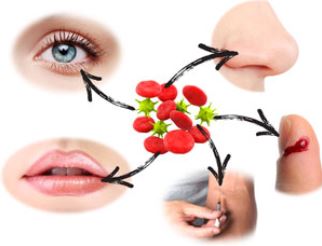 Illnesses can be spread in many different ways, with diseases commonly distributed and transmitted via the air or bodily fluids. If you work in a high-risk occupation, like healthcare personnel, bedside staff at a nursing home, cleaner at a long-term care facility, laboratory technician, or scientist, you may find that you are exposed to dangerous diseases far more often than in other jobs.
Illnesses can be spread in many different ways, with diseases commonly distributed and transmitted via the air or bodily fluids. If you work in a high-risk occupation, like healthcare personnel, bedside staff at a nursing home, cleaner at a long-term care facility, laboratory technician, or scientist, you may find that you are exposed to dangerous diseases far more often than in other jobs.
In this case, you need to take precautionary measures to ensure you do not become infected with a dangerous illness. However, like everything in life, accidents happen. If you are exposed to a disease, you need to spring into action to help fight the disease, prevent the spread, and minimize the health effects.
Let’s see the steps of what employees should do if they have been exposed to illnesses or viruses that are spread via bodily fluids.
Exposure to pathogens – earn your bloodborne pathogens certification to know what to do in this case!
For employers to better understand what to do in an emergency, every employer should require their employees to undergo training and earn the bloodborne pathogens certification so they can feel prepared in the event something goes wrong.
How can you be exposed to bloodborne pathogens?
Although it may seem uncommon, some everyday things can lead to the exposure and transmission of employees to bloodborne pathogens that can be spread around the business, such as:
- Needlesticks in healthcare facilities or long-term care facilities
- Contact of your eyes, skin, mouth, or nose with blood from a patient or vial of blood
- Assaults, especially in the healthcare industry or those who work at a care facility for those with mental or personality disorders
- Punctures when drawing blood
How can employees protect themselves?
The best way employees can feel prepared and ready to protect themselves from illness is by taking a course and earning the bloodborne pathogens certification. Some of the advice recommended during this training is:
- Get your recommended vaccines, like hepatitis B and Covid-19
- Read your exposure plan if you have been exposed to bloodborne pathogens while at your place of work
- Disposed of any needles and sharp objects into the hazardous waste bin immediately after use
- Use sharp devices that contain safety features to avoid the risk of pricks
- Use personal protective equipment, like face masks shields, eyewear, and gloves when dealing with bodily fluids
- Clean work surfaces with disinfectant after each patient or use
By following these disinfectant and preventive practices, employees can help slow the spread of bloodborne pathogens or airborne illnesses in the workplace, thereby reducing the chance of anyone else getting infected.
Conclusion
Although it can feel terrifying and overwhelming after being exposed to bloodborne pathogens, you can learn the proper safety techniques and methods to be preventive and spring into action if something happens. Take a course and earn the bloodborne pathogens certification to feel confident about protective measures, what to do if you are exposed, and how to treat the most common bloodborne illnesses.




